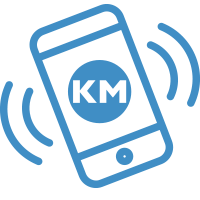What is a Compensable Claim (with examples)?

Live Help NOW  800-809-3776
800-809-3776
A compensable claim is a claim covered under the Workers’ Compensation Act. For a claim to be covered under Workers’ Compensation, the injury must arise from an accident out of and in the course of employment. However, it is important to note just because an injury occurs at work does not mean the injury is covered under the Act. Furthermore, just because the injury occurs during work hours does not mean the claim is automatically covered.
Let’s look at some examples:
- Slip and Fall Employee A is at work and during the course of his normal work slips on a wet floor and hits his head. This scenario would be covered under the Act. However, if Employee A comes to work feeling light headed and faints while at work and hits his head, the employer would not be responsible for any injuries sustained as a result of the fall.
- Parking Lot Employee A is walking into work and injures himself in the parking lot. If the injury is within a reasonable time period of the work shift and the parking lot is associated with the place of employment, the injury is likely covered. However, if Employee A voluntarily returns to the work parking lot to watch 4th of July fireworks and sustains injuries, such injuries would not be covered.
- Lunch If an employee is on the employer’s property during his/her lunch hour, an injury may be covered. However, to determine coverage the injury would have to result from reasonable activity during the course of employment.
- Ingress and Egress The time required to enter and exit the employment premises is generally covered by the act. This is closely related to parking lot injuries. If Employee A is walking into work and slips on a sidewalk, this may be covered under the Act as entering the building using the employer’s sidewalk is reasonably within the course of business.
What happens if I don’t report the accident the same day of the occurrence?
While it is a good idea to report your injury to the appropriate supervisor as soon as possible, delaying reporting your injury does not preclude you from recovering.
Are heart attacks covered by the Act?
Heart attacks are covered under the Act if the employee can prove that there was some kind of unusual stress or exertion during the course of employment that triggered the heart attack.
How long do I have to work for my employer to be covered under Workers Compensation?
There is no timing requirement to receive coverage under workers’ compensation. If you are injured on the job the first day you receive the same coverage as an employee working for 25 years.
If I am injured on a work-sponsored retreat, party or recreational activity, am I covered under the Act?
The key word here is work-sponsored. If the retreat, party or recreational activity is sponsored by, encouraged by or mandatory by order of the employer, any injury resulting from the activity is likely covered under the Act. For example, Employer A requires all employees to attend a teambuilding work retreat. During the course of the retreat, employees are required to participate in a trust fall exercise. If an employee is injured during the exercise, the injury sustained is likely compensable under the Act. However, if employees engage in an activity voluntarily (such as a pick-up basketball game on a weekend), injuries sustained are not compensable under the Act.
What is a PPI and what is a PPI Examination?
PPI stands for Permanent Partial Impairment. A PPI rating is a percentage ranging from 0-100 that describes your permanent loss of physical function. At the end of treatment when an injured employee reaches maximum medical improvement the treating physician will issue a PPI rating. This rating will then be used to determine a dollar amount reward based on the impairment to the injured employee’s body.
What if I disagree with my PPI rating?
If you disagree with your PPI rating you are entitled to a second opinion from a different doctor. However, a second PPI examination and report will be an added expense not covered by the Act.
What is an MMI?
An MMI stands for Maximum Medical Improvement. You reach your MMI when your treating physician says you do not require any more medical treatment.
What is an IME?
IME stands for Independent Medical Examination. If your TTD benefits are terminated because you have reached your maximum medical improvement, you are entitled to an IME. The IME is a second opinion with a doctor appointed by the Indiana Workers’ Compensation Board.
Is Workers’ Compensation taxable?
No, but any questions pertaining to reporting should be directed to the IRS.
What if my employer does not have Workers’ Compensation Insurance?
Employers are required to have workers compensation insurance under Indiana law. Failing to do so can result in employers being penalized. Contact the Indiana Workers’ Compensation Board (1-800-824-COMP) to verify whether your employer has insurance.
I live in another state, but I was injured while on the job in Indiana. In which state should I file a claim?
If you work in Indiana or your employer is based in Indiana, you should file a workers comp claim in Indiana.
Can I collect Workers’ Compensation benefits for pain and suffering?
No. Under the Indiana Workers’ Compensation Act, injured employees cannot recover for pain and suffering. However, if you are suing a third party, this would be a civil action in which case you could sue for damages such as pain and suffering.
What is an example of a third party lawsuit?
Employee A works for a nursery delivering flowers. Employee A is on a flower delivery run in a company vehicle. As he is driving, another vehicle runs a red light and hits Employee A, resulting in injuries. Because the injuries occurred within the course of employment, Employee A may recover under the Act and sue the other driver. The other driver becomes the third party.
Can I get a settlement for my Workers’ Compensation claim?
If you are injured on the job and suffer some kind of permanent disability, you are entitled to a settlement, usually paid in a lump sum. However, if you fully recover from your injury after treatment or therapy, you may not be entitled to settlement.
My spouse died as the result of a workplace accident. Can I collect Workers’ Compensation?
If a family member dies as a result of a work-related accident, the Workers’ Compensation Act provides that the surviving family members can receive benefits through the life of the surviving spouse.
I received a bill from the Workers’ Compensation doctor. Do I have to pay the bill?
If your claim is approved, you do not have to pay for medical treatment that resulted from a work injury. If your claim was denied, you may still elect to not pay for medical treatment and indicate you are in the process of having your claim approved.
My restrictions prevent me from returning to my job. What should I do?
If you were injured on the job, you are entitled to Vocational Rehabilitation services from the State of Indiana. However, these services are not paid for under the Act and will be an out of pocket expense.

